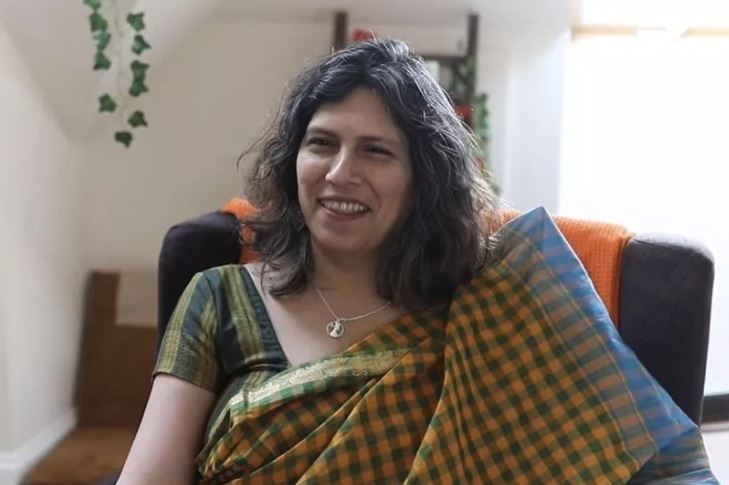So the feminists — the terfs, the bigots, the bullies — were right. According to a report commissioned by Rape Crisis Scotland, Edinburgh Rape Crisis Centre (ERCC) has not been putting rape survivors first. For the past 16 months, women-only services have not been made available for those who need them. Meanwhile, ERCC’s former chief executive officer, Mridul Wadhwa, has now resigned after being accused of “not understand[ing] the limits of her role” and “fail[ing] to set professional standards of behaviour”.
That is putting it mildly. The problem here is not one of disorganisation or managerial overreach. As anyone who followed the tribunal of former ERCC caseworker Roz Adams will know, it is one of deliberate sabotage. It is not that the need for women-only spaces somehow fell off Wadhwa’s radar. It’s more that Wadhwa — a trans-identified male who does not have a Gender Recognition Certificate — did not approve of the kind of survivor who requests them.
When, in a 2021 podcast, Wadhwa claimed that rape survivors desiring female-only spaces should “expect to be challenged on [their] prejudices”, it was clear this was someone who possessed neither empathy nor a basic understanding of the politics of sexual violence. Those comments should have provoked universal outrage, yet they did not. On the contrary, all those who objected were told that they were the ones who needed to #bekind.
There is nothing about the damage Wadhwa has done to ERCC that could not have been predicted several years ago. The tragedy is that plenty of those who enabled the sabotage still claim to be feminists. For women such as Nicola Sturgeon, Mhairi Black and Shona Robison, trans activism’s infiltration of the women’s movement provided the ideal way to prove how forward-thinking and progressive they were. There is, after all, more status in claiming to be a trans ally than in aligning yourself with the women of the past, those drudges who built up the very things that you are now free to trash.
For this is a story of letting a thing be wrecked because you think so little of those who created it. Reading the past few years’ discourse on female-only spaces and inclusion, one could be forgiven for thinking women were handed rape crisis centres as part of some luxury “cis privilege” benefits package. The truth is that they fought for them. It is shameful that such a small thing — not the end of rape, nor even a meaningful reduction in rape, merely the resources to support women in its aftermath — should have had to be fought for at all. “Good” men should have been desperate to support women in their efforts, providing financial backup while keeping well away. Then, as now, few actually did.
As Karen Ingala Smith notes in Defending Women’s Spaces, early women’s refuges and rape crisis centres were “run by women on the ground, often with very little, if any, funding, little experience of providing support outside friends and family and without government backing”. Since then, male violence against women and girls has become a mainstream policy concern, but this, Smith writes, “has come at a cost. The price we have paid is depoliticisation — specifically, a watering down of feminist politics.” In Edinburgh, a boundary was crossed from watered-down feminism into explicit anti-feminism.
Women are having to build things from the ground up once again. They do so not only in the face of a “progressive” backlash against feminism, but in the knowledge that rape crisis services remain a specific target for those seeking to undermine women’s boundaries, question their perceptions of reality and destroy their trust. That Scottish women have J.K. Rowling fighting their corner is wonderful, but that her intervention is deemed controversial shows how much we have lost.
Half a century after the founding of the first women’s refuges, we should be arguing for better female-only services, not trying to justify their existence or re-invention. Shame on Mridul Wadhwa, but shame, too, on every “feminist” who boosted her status by casually unpicking the work of every unknown, unpaid, unsung woman who achieved things she never will.











Join the discussion
Join like minded readers that support our journalism by becoming a paid subscriber
To join the discussion in the comments, become a paid subscriber.
Join like minded readers that support our journalism, read unlimited articles and enjoy other subscriber-only benefits.
Subscribe